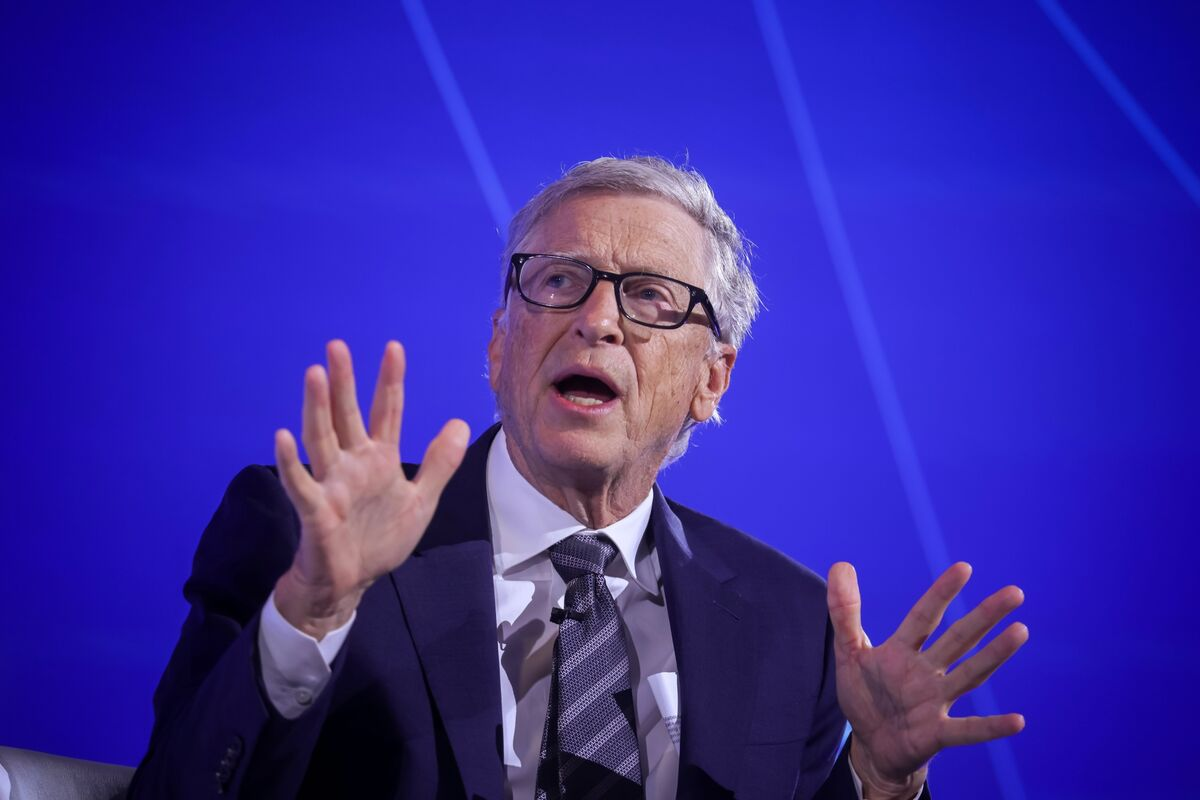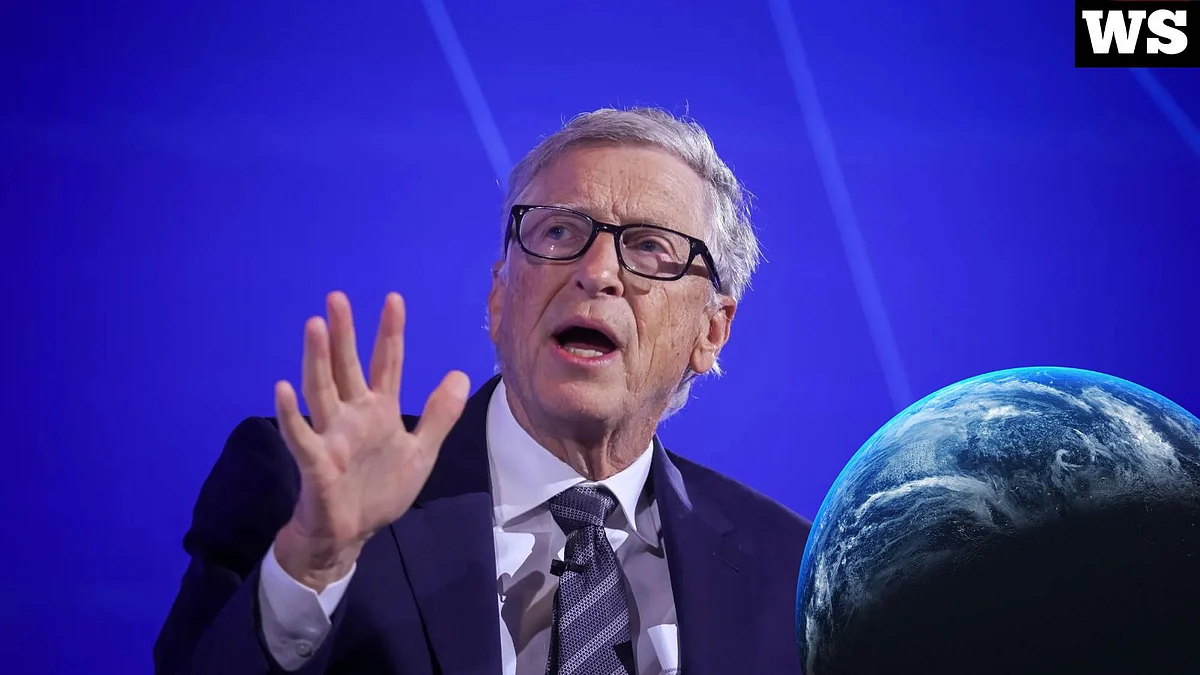Copyright breezyscroll

In a surprising shift from years of dire climate warnings, Bill Gates now says global warming, while serious, will not spell the end of humanity. The Microsoft co-founder and philanthropist, who once likened climate change to a greater threat than pandemics, nuclear war, or poverty, has softened his tone, urging a “measured, optimistic approach” instead of “doomsday rhetoric.” What Bill Gates said about climate change now In a new blog post published this week, Gates wrote that although rising temperatures will cause “serious consequences, particularly for people in the poorest countries,” the world will not become uninhabitable. “Although climate change will have serious consequences, particularly for people in the poorest countries, it will not lead to humanity’s demise,” Gates wrote. “People will be able to live and thrive in most places on Earth for the foreseeable future.” This marks a major tonal reversal for the billionaire philanthropist, who for years warned that climate change could lead to catastrophic societal collapse. Gates now calls for shifting the focus from fear to resilience, emphasizing investments that improve human welfare rather than just lowering carbon numbers. From doomerism to realism: What triggered the shift? Just four years ago, Gates released his book “How to Avoid a Climate Disaster,” arguing that climate change was humanity’s biggest existential threat — “even greater than eradicating smallpox or landing on the moon.” But his latest essay urges a more pragmatic mindset. Gates argues that: Technological progress has made clean energy cheaper and more scalable. The worst-case climate projections are becoming less likely due to global adaptation efforts. Human ingenuity, from renewable innovation to agricultural resilience, will help societies survive and thrive. He suggests the goal should no longer be framed as preventing an apocalypse but maximizing human welfare under changing conditions. “We should measure success by our impact on human welfare more than our impact on the global temperature,” he wrote, signaling a shift from environmental absolutism to human-centered metrics. Why Gates’ reversal matters Gates’ voice has long shaped the global climate agenda. Through the Bill & Melinda Gates Foundation and his investment firm Breakthrough Energy Ventures, he’s poured billions into climate-related technologies, from sustainable aviation fuels to nuclear fusion. His new stance could influence policymakers, investors, and activists who have relied on his previous framing of climate change as a “code red” emergency. By advocating optimism and adaptability, Gates may help recalibrate climate narratives toward problem-solving and technological innovation instead of fear-based activism. However, critics warn that “toning down the urgency” risks slowing global action, especially in regions already facing extreme weather, drought, and displacement. The billionaire paradox: criticism and self-awareness Gates has frequently faced backlash for what many call “climate hypocrisy.” He has traveled extensively to speak about environmental issues, often in his $70 million private jet that burns nearly 450 gallons of fuel per hour. In his post, Gates acknowledged the contradiction but claimed to offset his emissions using “legitimate carbon credits.” This admission highlights an ongoing debate about whether offsets truly balance emissions or merely serve as moral cover for high-carbon lifestyles. How his new message fits into the global climate debate Gates’ remarks arrive at a tense moment in climate discourse. While activists like Greta Thunberg and Extinction Rebellion maintain an urgent tone, warning of irreversible tipping points, others in the scientific and policy community are emphasizing adaptation, resilience, and realistic optimism. In essence, Gates has moved closer to the latter camp: accepting that climate change is real and damaging, but not civilization-ending. Experts interpret this as part of a “maturity shift” in climate dialogue, from fear-driven mobilization to sustainable, technology-driven adaptation. “The goal is no longer to stop every degree of warming,” one analyst told Bloomberg. “It’s to make sure people can still live decent, thriving lives despite it.” The global reaction Reactions have been mixed. Environmental activists criticized Gates’ softened tone as “dangerously complacent,” while economists and innovation advocates welcomed it as a “long-overdue dose of realism.” On social media, the post sparked heated debate, with some praising Gates’ emphasis on human adaptability and others accusing him of abandoning the urgency he once championed. Meanwhile, political figures have seized on his comments for contrasting reasons. Former President Donald Trump, a longtime climate skeptic, once called global warming the “greatest con job ever perpetrated.” Gates’ new tone may embolden those who argue that the climate crisis has been exaggerated. What comes next for Gates’ climate strategy Despite his rhetorical pivot, Gates says he remains committed to funding climate innovation. His foundation continues to support: Carbon removal technologies (direct air capture, reforestation). Green hydrogen and battery storage. Geoengineering research, including projects to reflect sunlight away from the atmosphere. He insists the world should continue reducing emissions aggressively, but with a balanced mindset that prioritizes both environmental stability and human well-being. As he put it: “We’ve come too far in understanding climate change to let fear dictate our response. The future isn’t doomed — it’s ours to improve.” Shift: Bill Gates now says climate change won’t cause humanity’s demise, a reversal from his earlier doomsday warnings. Focus: He urges measuring success by human welfare, not just global temperature. Context: Gates continues investing billions in clean energy but promotes optimism and adaptability. Reaction: Critics call it complacent; supporters say it’s pragmatic realism.



